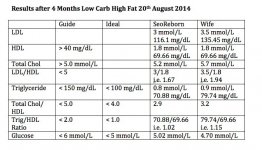Lost 15 pounds after reading "Why We Get Fat" by Gary Taubes.
Yeah, eat lots of meat and green vegetables and avoid sugar like the plague. Also avoid eating bread.
I eat as much damn eggs and bacon in the morning as I want.
Fry the bacon in low heat. It will take longer but its better for you. Bacon has added nitrates. When nitrites are exposed to high heat, in the presence of amino acids, they can turn into compounds called nitrosamines.
There are many different types of nitrosamines and most of them are potent carcinogens.
I used to have high fat nuts with full fat yogurt and cream for breakfast:

Here is the recipe: LCHF-breakfast in the summer | DietDoctor.com
I take a teaspoon of greek bio full fat (10% fat) yogurt and add in generous amounts of full fat double cream (50% fat). I whip it to a good consistency.
In addition I add in 2 heaped teaspoons of cocunut fat, and whip again.
I don't add in the blueberries as I want it as low carb as possible. I don't use the exact nuts as in the recipe, but i chose nuts according to:
saturated/monounsaturated/omega 3 > omega 6 fats
So I take a cup of the mixed nuts/seeds and add it to the prepared cream.
That breakfast is really filling, and I don't feel like eating lunch.
What I am doing recently (one month so far):
Instead of that breakfast, I created my own coffee recipe. Add in 2 heaping teaspoons of cocunut fat, a piece of organic pasture butter (15-20g), pour in espresso, top it up with some hot water, stir and top up with generous amounts of full fat double cream (50% fat). Drinking this, it saves me time, I don't need to eat until lunch, and my mind is sharp.
When I surf the net, it turns out what I made is part of the recipe for bulletproof coffee, and lots of people are doing this.




